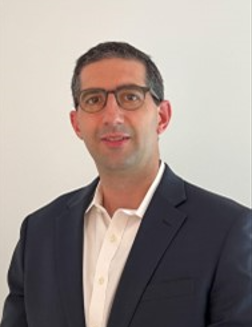Dr Zachary Solomon: The Path to Becoming a Cardiothoracic Surgeon
Dr Zachary Solomon: The Path to Becoming a Cardiothoracic Surgeon
Blog Article

Cardiothoracic surgery the same as these performed by Dr Zachary Solomon has always been at the lead of medical improvements, combining detail, skill, and engineering to take care of situations of one's heart, lungs, esophagus, and other organs in the thorax. Over the past few decades, this field has observed innovative improvements and techniques that have dramatically improved individual outcomes, recovery times, and over all standard of living, based on Doctor Zachary Solomon.
The Evolution of Cardiothoracic Surgery
Cardiothoracic surgery has come a long way from its early days. The first effective heart operation, performed in the late 19th century, put the inspiration for an changing specialty noted by rapid advances. By the mid-20th century, the progress of the heart-lung unit allowed surgeons to perform complicated open-heart procedures. Today, the control keeps growing with ongoing study and technological innovations.
Minimally Invasive Surgery
One of the very amazing improvements in cardiothoracic surgery may be the introduction of minimally unpleasant techniques. These procedures in many cases are performed through small incisions, lowering injury to the human body and marketing faster recovery. Some crucial minimally invasive techniques contain:
• Robotic-Assisted Surgery
• Video-Assisted Thoracoscopic Surgery (VATS
• Transcatheter Aortic Valve Substitute (TAVR
Image-Guided and Computer-Assisted Surgery
Advanced imaging technologies and computer-assisted methods have somewhat increased the accuracy and security of cardiothoracic procedures. Improvements of this type include:
Improved Recovery Practices
Developments in perioperative treatment have generated the progress of Improved Healing Following Surgery (ERAS) standards, which aim to improve preoperative, intraoperative, and postoperative care to boost recovery.
Future Instructions
The ongoing future of cardiothoracic surgery is encouraging, with constant research in to:
• Base Mobile Therapy: Exploring the potential of stem cells to correct and replenish broken heart tissues.
• Artificial Intelligence (AI): AI-driven analytics can help in analysis, operative planning, and outcome prediction, ultimately causing more individualized and effective treatments.
• Nanotechnology: The application of nanoparticles for targeted medicine supply and minimally intrusive treatment options.
Realization
Cardiothoracic surgeons like Dr Zachary Solomon Philadelphia remains to push the boundaries of what's possible in medicine. With the ongoing progress of progressive methods and technologies, people can look forward to better procedures, smaller recoveries, and better over all outcomes. The constant quest for excellence in that subject underscores the responsibility to improving the quality of life for those with cardiothoracic conditions.
Report this page